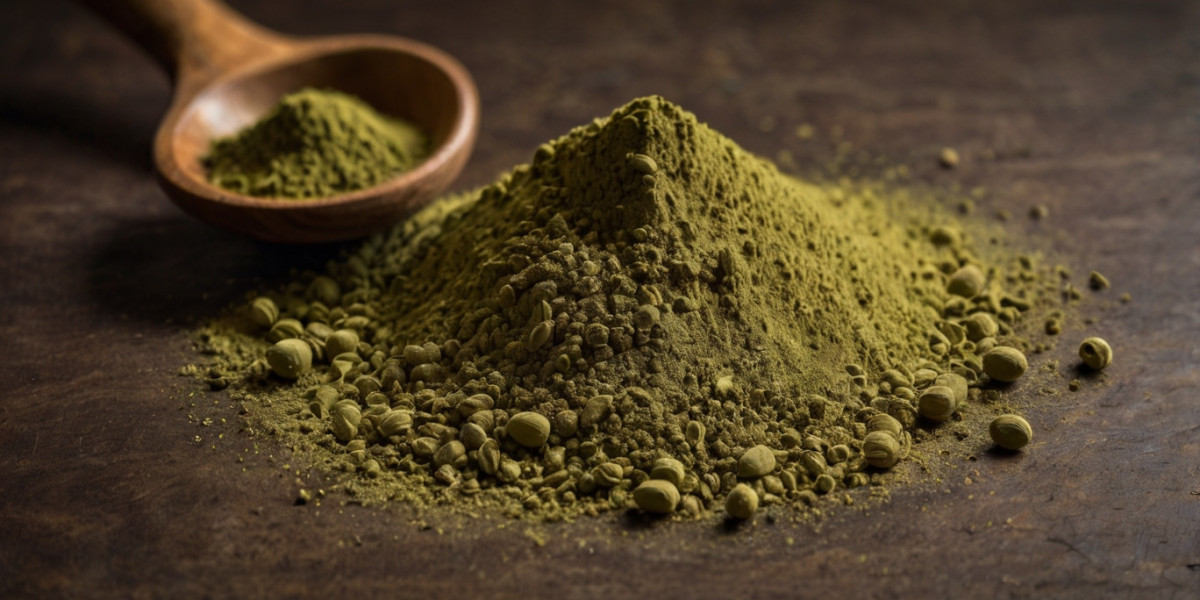What is Kratom?
Kratom is a botanical substance derived from the leaves of the Mitragyna speciosa tree. The leaves contain compounds called alkaloids, with the two most prominent ones being mitragynine and 7-hydroxymitragynine. These alkaloids have opioid-like properties and interact with the brain's opioid receptors, producing pain-relieving and sedative effects.
Kratom is available in various forms, including dried leaves, powder, capsules, and liquid extract. It can be consumed by brewing a tea, chewing the leaves, or swallowing the powder or capsules. Some users also mix kratom with other beverages or foods.
Benefits of Kratom
- Pain relief: Kratom has been traditionally used in Southeast Asia as a natural pain reliever. Its opioid-like properties can help alleviate chronic pain conditions such as arthritis, fibromyalgia, and migraines.
- Mood enhancement: Kratom is known for its mood-boosting effects, making it popular among individuals seeking relief from anxiety, depression, and stress. It can induce feelings of relaxation and euphoria, leading to improved overall well-being.
- Energy and focus: Low doses of kratom can act as a stimulant, enhancing energy levels, concentration, and productivity. It is often used by students and professionals to combat fatigue and improve cognitive performance.
- Opioid withdrawal: Kratom has been touted as a natural alternative to conventional opioids for managing opioid withdrawal symptoms. Some individuals use kratom to reduce cravings, alleviate withdrawal discomfort, and transition to sobriety.
- Digestive health: Kratom has digestive properties and can help relieve gastrointestinal issues such as diarrhea, constipation, and bloating. It may also have anti-inflammatory effects on the digestive system.
Risks of Kratom
- Addiction and dependence: Kratom can be habit-forming due to its opioid-like effects on the brain. Prolonged and excessive use of kratom can lead to physical and psychological dependence, resulting in withdrawal symptoms when discontinuing its use.
- Health risks: The long-term effects of kratom on health are not well-understood. Excessive consumption of kratom has been associated with liver damage, kidney failure, respiratory depression, and cardiac complications. Individuals with pre-existing medical conditions should exercise caution when using kratom.
- Tolerance and withdrawal: Regular use of kratom can lead to the development of tolerance, requiring higher doses to achieve the desired effects. Abrupt cessation of kratom may trigger withdrawal symptoms such as muscle aches, insomnia, anxiety, and irritability.
- Contamination and adulteration: The kratom market is largely unregulated, leading to the presence of contaminated or adulterated products. Some kratom products may be laced with synthetic compounds or harmful additives, posing risks to consumer health.
- Drug interactions: Kratom can interact with certain medications, including antidepressants, benzodiazepines, and opioids. These interactions can potentiate the effects of drugs or lead to adverse reactions, emphasizing the importance of consulting a healthcare provider before using kratom.
Regulation of Kratom
The legal status of kratom varies across countries and regions. In the United States, kratom is legal at the federal level but is regulated on a state-by-state basis. Some states have banned the sale and possession of kratom, citing safety concerns and potential harm. Other countries like Australia, Thailand, and some European nations have also imposed restrictions on kratom due to its psychoactive properties.
In response to the growing demand for kratom, regulatory agencies have expressed concerns about its safety and the need for quality control measures. The Food and Drug Administration (FDA) has issued warning letters to kratom vendors for selling adulterated products and making unsubstantiated health claims. The Drug Enforcement Administration (DEA) has considered classifying kratom as a Schedule I controlled substance, citing its abuse potential and lack of accepted medical use.
As the regulatory landscape evolves, consumers are advised to purchase kratom from reputable suppliers who adhere to good manufacturing practices and provide third-party lab testing for purity and potency. It is essential to research the legality of kratom in your jurisdiction and follow local regulations to avoid legal repercussions.
Guidelines for Safe Kratom Use
If you are considering using kratom for its potential benefits, it is crucial to approach its consumption with caution and responsibility. Here are some guidelines for safe kratom use:
- Start with a low dose: Begin with a small amount of kratom to assess your tolerance and sensitivity. Gradually increase the dose as needed, but avoid exceeding the recommended dosage guidelines.
- Stay hydrated: Kratom can have dehydrating effects, so it is essential to drink plenty of water while using this herbal supplement. Proper hydration can help prevent constipation and promote overall well-being.
- Rotate strains: To reduce the risk of tolerance and dependence, rotate different strains of kratom and avoid using it daily. This practice can prevent the build-up of alkaloids in your system and maintain the effectiveness of kratom over time.
- Avoid combining with other substances: Refrain from mixing kratom with alcohol, drugs, or medications without consulting a healthcare provider. Combining kratom with other substances can lead to adverse interactions and health complications.
- Listen to your body: Pay attention to how your body responds to kratom and adjust your dosage accordingly. If you experience any adverse effects or discomfort, discontinue its use and seek medical advice.
- Consult a healthcare provider: Before using kratom, especially if you have underlying health conditions or are taking medications, consult a healthcare provider to discuss its potential risks and benefits. Your healthcare provider can offer personalized guidance and monitor your health while using kratom.
In conclusion, kratom is a botanical substance that has gained attention for its potential benefits in managing pain, enhancing mood, and promoting well-being. However, it is essential to weigh the risks and benefits of kratom carefully and approach its use with caution. By following safe practices, staying informed about regulatory developments, and seeking professional guidance, you can make informed decisions about incorporating kratom into your wellness routine. Remember that self-care and responsible consumption are key to maximizing the benefits of kratom while minimizing potential risks.
If you loved this article and you would like to receive extra facts regarding Reddit forums kindly visit our own web-page.









